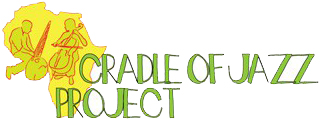Our Mission
- Illuminating the influence of West African music in American music traditions.
- Preparing West African youth to join the American musical dialogue.
- Understanding music through the lens of more than one music theory.
In colonialist America, there was a huge interest in the music of the African slaves. J. Kennard wrote in 1845 in Knickerbocker Magazine:
“Who are our true rulers? The Negro poets, to be sure. Do they not set the fashion, and give laws to the public taste? Let one of them, in the swamps of Carolina, compose a new song, and it no sooner reaches the ears of a white amateur, than it is written down, amended (that is, almost spoilt), printed, and then put upon a course of rapid dissemination, to cease only with the upmost bounds of Anglo-Saxondom, perhaps with the world. Meanwhile, the poor author digs away with his hoe, utterly ignorant of his greatness.”
Why did the early African Americans make such an imprint musically on the early white Americans? And why, on the flip side, was their music so often described as “barbaric,” “out-of-tune,” and “out-of-time”? Was the music really all that bad?
Or could it be that the Western mind and ear could not comprehend music that exists beyond the bounds of Western music theory?
The purpose of this website is to help Westerners realize that a separate, well-developed music theory came over with the Africans during the slave trade. Its sound quickly permeated the country, and soon developed into the blues, and then jazz, and then all other popular musics that have ever moved the feet of the youth in this country.
West African music was forced into compliance with Western standards, just as West Africans were forced into compliance on the plantations. But nonetheless, the music managed to change the face of American culture. What would happen if we backtracked, and explored a willing fusion of these theories? Particularly, what would happen to jazz music if its students were given an understanding of their true roots? What would happen if we asked West African music scholars to participate in the education of our jazz students? To provide this musical restitution is the mission of the Cradle of Jazz Project.
